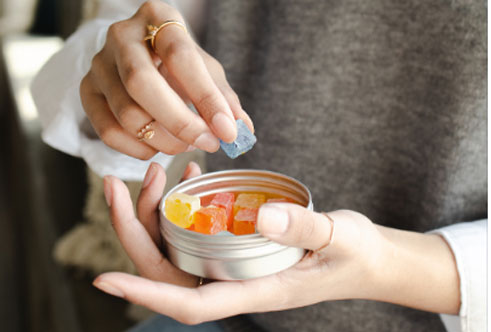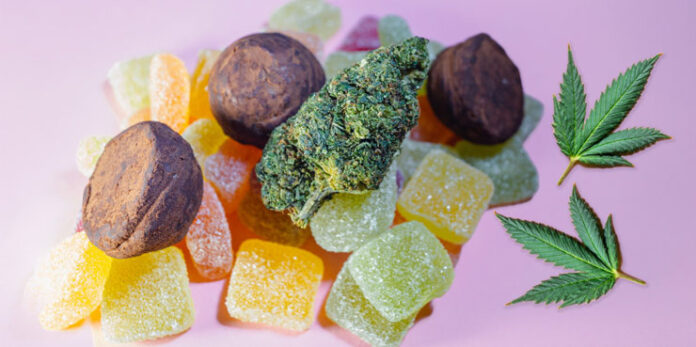Ever since the 2018 Farm Bill came to fruition, the Food and Drug Administration (FDA) has been cracking down on CBD and hemp businesses to ensure the products being sold are safe for consumption.
Earlier this year, six cannabis companies received joint FTC-FDA cease and desist letters for deceptive packaging that mimicked the look of candy and snack brands popular with children. According to the two agencies, the companies were marketing edibles containing Delta-8 THC.
A Focus on CBD and Delta-8
Now, the FDA is continuing to send out warning letters to distributors of foods containing CBD and delta-8 THC. According to Seth Goldberg, Co-leader of the Cannabis Industry Group at law firm Duane Morris, this has been going on for quite some time. Recently, the FDA has been more attentive to delta-8-infused foods.
“From the FDA’s standpoint, CBD and delta-8 haven’t been shown to be safe to be included in food products as a food additive. Therefore, in cookies and gummies, it’s an unadulterated food product,” explains Goldberg. “Oftentimes, these manufacturers are also making health claims about CBD and delta-8, so the FDA is also concerned about those claims.”
After the 2018 Farm Bill, manufacturers began infusing CBD into ingestible products such as cookies and gummies, according to Goldberg. Since then, the FDA has been sending out warning letters to these manufacturers, particularly those making health claims about their merchandise.
“Manufacturers are making claims about how their products can change bodily functions or cure diseases and ailments, so CBD has been on the FDA’s radar for a number of years,” Goldberg says. “But it’s really been over the last six months to a year that the FDA has taken more action with respect to delta-8 THC.”

Delta-8 THC Causing Adverse Events
Goldberg notes that in these warning letters, the FDA specifically states that unlike CBD, delta-8 THC has psychoactive effects as well as being an intoxicant. There have also been adverse events with respect to delta-8 that are raising concern.
According to the FDA website, the organization received 104 reports of adverse events in patients who consumed delta-8 THC products between December 1, 2020, and February 28, 2022. Of these 104 adverse event reports:
- 77% involved adults, 8% involved pediatric patients less than 18 years of age and 15% did not report age.
- 55% required intervention (e.g., evaluation by emergency medical services) or hospital admission.
- 66% described adverse events after ingestion of delta-8 THC-containing food products (e.g., brownies, gummies).
- Adverse events included, but were not limited to: hallucinations, vomiting, tremor, anxiety, dizziness, confusion and loss of consciousness.
Putting a Stop to Health Claims
Until federal regulation, Goldberg questions whether these products should even be marketed at all. Even though CBD is not intoxicating, manufacturers are still making health claims that it can help cure diseases or ailments, which is scientifically untrue at this time.
While CBD is being studied as a treatment for a wide range of conditions, including Parkinson’s disease, schizophrenia, diabetes, multiple sclerosis and anxiety, the Mayo Clinic reports that research supporting the drug’s benefits is still limited.
Currently, the only CBD product approved by the FDA is a prescription oil called Epidiolex, according to the Mayo Clinic. It’s approved to treat two types of epilepsy. Aside from Epidiolex, state laws on the use of CBD vary.
“I think CBD is in a different category than delta-8 because it’s not intoxicating. What we’ve seen in retrospect to CBD products is that the FDA is primarily only concerned when health claims are being made, so manufacturers who are putting CBD into their products should really be tearing away from making claims,” Goldberg says. “But delta-8 products are currently being debated right now in courts across the country because the question is whether this is still a controlled substance as opposed to being legal.”










